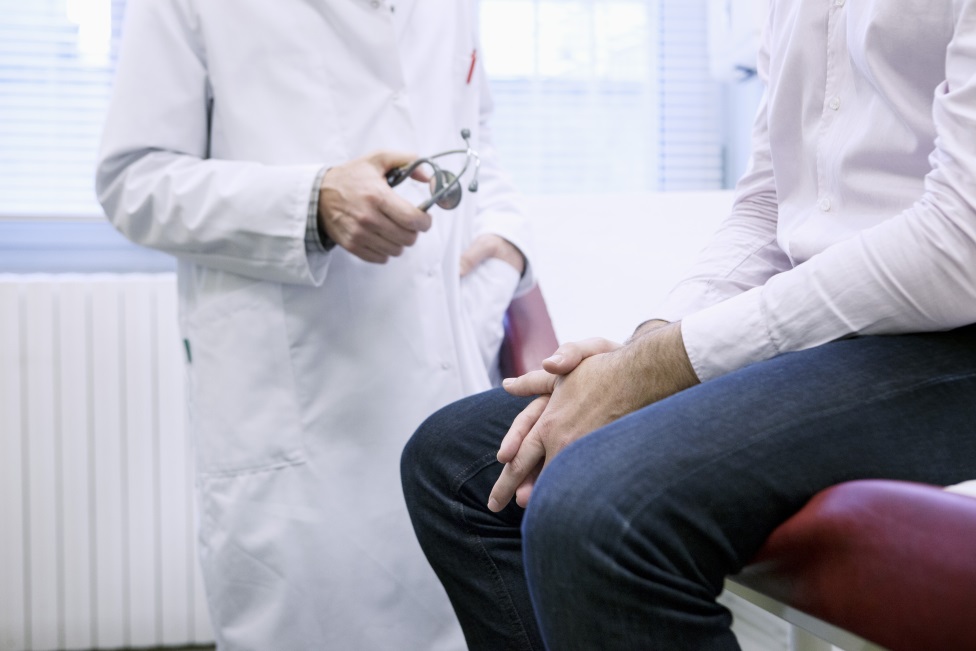Vitamin D Deficiency & Prostate Cancer
New Study Finds Link Between Vitamin D Deficiency & Prostate Cancer
You know it’s important to take your vitamins, but new research suggests that it might be even more important than previously thought.
A recent study conducted at Northwestern University’s Feinberg School of Medicine discovered a significant link between vitamin D and the likelihood of aggressive or recurring prostate cancer. More specifically, men with a vitamin D deficiency were up to five times more likely to have an advanced-stage prostate tumor. In addition, among African-American men, a vitamin D deficiency indicated a greater likelihood of a prostate cancer diagnosis at any stage.
The study included 667 men between the ages of 40 and 69 who were undergoing their first prostate biopsy. Among the men studied, 168 received a cancer diagnosis as a result of the biopsy. All of the men diagnosed with cancer had vitamin D levels significantly lower than the normal range of 30 to 80 nanograms per milliliter. All of the men of European-American descent diagnosed with cancer had vitamin D levels of 12 nanograms per milliliter or less, while the African-American men had levels of 25 nanograms per milliliter or less. In short, the study found that the lower the levels of Vitamin D for any race, the more aggressive and advanced the cancer.
Vitamin D Deficiency Explained
Vitamin D, also known as the sunshine vitamin, is primarily produced by our bodies in response to the sun, although it is found naturally in some foods. Most dairy products are fortified with vitamin D, as it helps with the absorption of calcium.
Vitamin D deficiency is most commonly associated with musculoskeletal problems, most commonly muscle weakness and bone pain. However, it can contribute to other issues, including asthma, cognitive problems and cardiovascular disease — and, as the Northwestern study confirms, certain types of cancer.
The problem is that many adults unintentionally develop vitamin D deficiencies in pursuit of other healthy habits. Because the majority of vitamin D is produced by absorbing sunlight, our modern lifestyle of limiting exposure to the sun and using sunscreen regularly has the side effect of reducing natural vitamin D production. In addition, limiting intake of dairy and animal products (primarily fish and eggs) as part of a healthy diet also reduces natural Vitamin D production. Having darker skin also limits vitamin D production, which the scientists believe is the explanation for the greater correlation between prostate cancer and low levels of the vitamin in African American men.
Treating Vitamin D Deficiency to Reduce Risk of Prostate Cancer
As a result of this study, doctors suggest that maintaining adequate levels of vitamin D could play an important role in reducing risk, particularly after receiving treatment for prostate cancer. While they stress vitamin D is not the only factor in preventing prostate cancer, keeping levels in a healthy range is important and may help prevent the cancer from advancing or returning after treatment.
To that end, adults should talk with their doctors about testing their Vitamin D levels, and supplementing when necessary. Eating foods that contain Vitamin D, including fortified dairy and whole grain items, eggs, leafy greens and certain species of fish, can also help maintain a healthy level. Ideally, you should aim to get at least 600 IU of vitamin D each day; your doctor may recommend more, up to 4,000 IU per day depending on your individual levels.
Maintaining a healthy lifestyle is important when it comes to reducing your cancer risk, and in improving the effectiveness of your treatment. If you have received a prostate cancer diagnosis, consult with one of the compassionate specialists at Pasadena Cyberknife to explore your options and get back to your life as quickly as possible.

